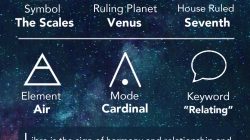The Essence of Leadership
Leadership is a multifaceted concept that involves guiding, influencing, and motivating a group of individuals toward achieving shared goals. At its core, leadership requires a set of essential characteristics and traits, such as the ability to plan, organize, direct, and control, along with strong decision-making skills. Beyond these fundamental abilities, a leader must also possess self-confidence, effective communication skills, and a willingness to delegate tasks.
Throughout history, leadership has often been idealized, creating unrealistic expectations of leaders being “supermen or women.” In reality, no individual can possess all positive qualities. Every leader has some form of inadequacy, whether in personal traits or technical expertise. This understanding highlights the importance of recognizing that no one is perfect, and leadership is not about having all the answers but rather about inspiring and empowering others.
In my view, leaders are essentially “Dream Merchants.” They sell their vision to followers who believe in the feasibility of that dream through dedicated efforts. The development of a loyal following depends on a leader’s realistic approach to achieving their vision, supported by traits like clear communication, honesty, integrity, patience, passion, and expertise. A leader must also demonstrate emotional and spiritual intelligence, as well as the ability to inspire those around them.
The Evolution of Leadership Theories
Management studies from the early 19th century sought the “one person” who could embody all the required leadership traits, often viewing this as a natural gift rather than something acquired through training and experience. This led to the belief in “born leaders,” a theory that remained largely unchallenged throughout the 20th century.
With the arrival of the 21st century, the rapid advancement of technology transformed how businesses and governments operate. This shift prompted a more fragmented approach to leadership, leading to the emergence of various concepts such as situational leadership, transformational leadership, transactional leadership, and functional leadership. These theories further expanded the understanding of leadership, introducing ideas like authentic leadership and servant-leadership.
Positional vs. Personal Power
Positional power arises from an individual’s rank, title, or office. It is not necessarily tied to skills or qualities but can be enhanced by basic competencies that improve decision-making. This type of power allows the holder to influence others through guidance, planning, organizing, directing, and controlling. However, positional power is temporary and lasts only as long as the individual holds the position or remains within the organization.
In contrast, personal power stems from an individual’s innate qualities and the ability to influence others without holding a formal title. This form of power is more enduring because it is rooted in personal attributes that cannot be easily taken away. While positional power provides authority over hiring, firing, rewarding, and reprimanding, it also comes with coercive power—such as the ability to enforce punishments.
Navigating Social and Professional Invitations
As a CEO, I often faced invitations to various events. My decision to attend depended on whether the invitation was for me personally or for the CEO role. Unless driven by business needs, I preferred events that reflected my personal identity rather than my position. For instance, the wedding of a CEO’s child is a personal event, not a corporate one. Inviting vendors or suppliers to such events is not appropriate, as it creates a conflict of interest. Personal power helps maintain boundaries and ensures that guest lists reflect genuine relationships rather than titles.
While holding a rank or title can make it easier to gain social recognition, building a network based on personal skills and qualities takes longer. However, recognition rooted in personal traits tends to have greater longevity and stability. Using positional power for social access is not inherently harmful, but it should not overshadow the value of personal growth and development.
The Dangers of Hereditary Leadership
An antidote to both positional and personal leadership is the presence of hereditary leadership, which is often detrimental. Hereditary power is not based on legality or skill but rather on lineage. In some cultures, individuals assume leadership roles simply because they are born into them, regardless of their qualifications or attitude. This practice can lead to a lack of accountability and a culture of self-coronation, where leaders take charge without earning their position.
Building Loyalty Through Personal Power
Positional power cannot foster true loyalty, while personal power does. Leaders who rely solely on their titles may demand respect, and when it is not given, they may resort to abuse of power. This behavior can create a toxic environment filled with fear and reprimands.
To be an effective leader, especially in high positions such as CEO, MD, or Chairperson, it is crucial to use positional power to build a stronger personal power base. This involves focusing on acquiring new skills and continuously improving oneself. Strong communication skills are vital, and any deficiencies should be addressed through effort and dedication during one’s tenure.
The Ideal Leader: A Balance of Power
The most successful leaders strike a balance between positional and personal power. This combination ensures the healthy growth of an organization and fosters a culture of trust and commitment. A perfect leader embodies a fair balance between the power derived from their position and the power of their intrinsic qualities—honesty, integrity, and a principled nature.
Colleagues should admire a leader not out of fear but because of the qualities they embody. Personal power, rooted in authenticity and character, builds loyalty and long-term commitment. Ultimately, the best leaders are those who combine the strengths of both positional and personal power to drive positive change and achieve lasting success.







